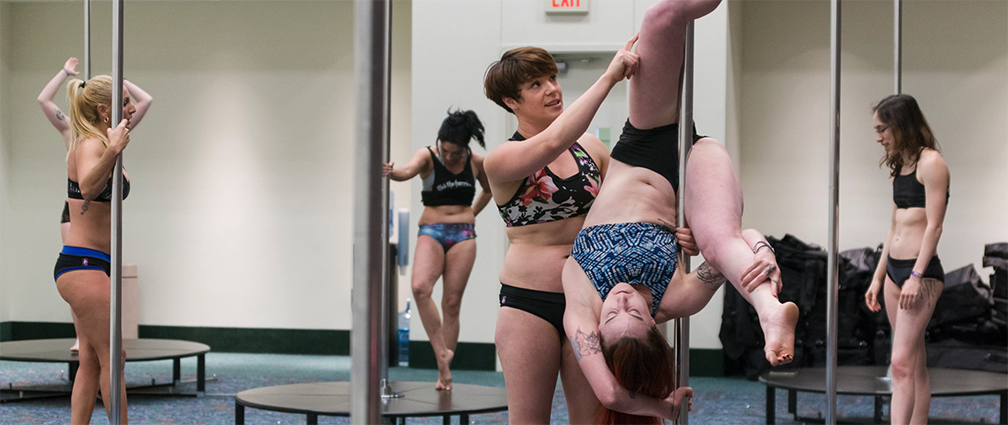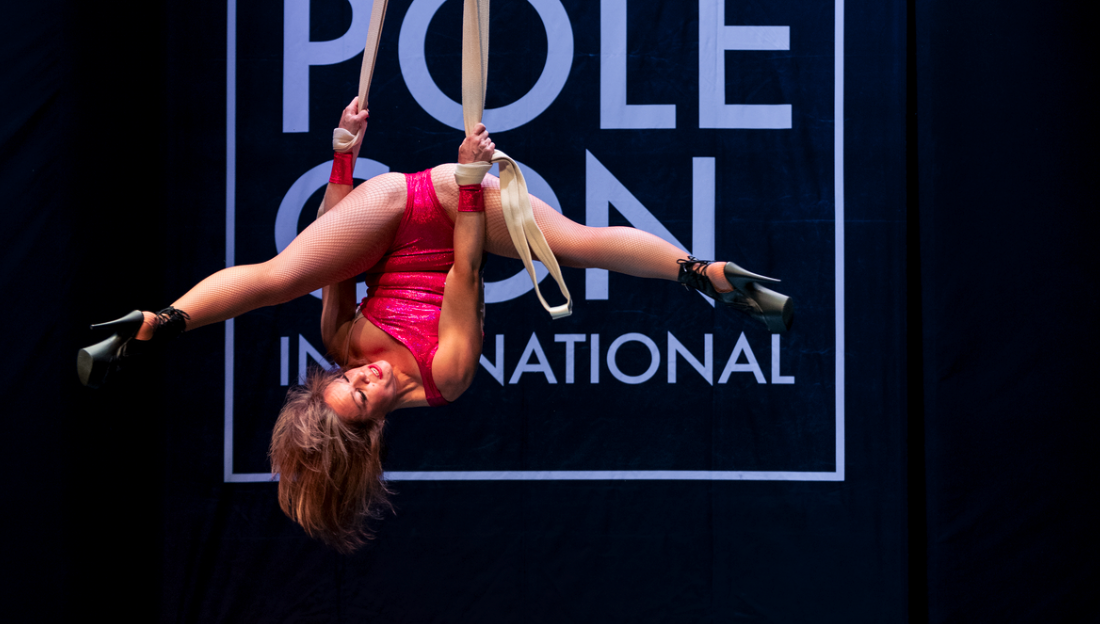I asked this a few weeks ago via social media and many people had some…

Netiquette Lessons for the Online Pole Community
If you are one of the few lucky polers who live in a major metropolitan area, you most likely have your pick of pole studios filled to the brim with talented teachers, amazing cross-training opportunities (try trapeze! contortion! break dance!) all with convenient class schedules and affordable price points (ok, maybe I’m living in my own little pole wonderland on those last two points).
And even if you do have an “in real life” pole community, it is likely you are still spending some time online, researching videos on YouTube, pinning cool moves to Pinterest, finding fellow polers on Facebook or UPA’s forums and avidly following your pole idols on Instagram.
Maybe A LOT of time.
We have more ways to connect, learn from and support each other in our modern world than ever before. We also have more ways and more opportunities to be cruel to each other.
The anonymity afforded to us by the vastness of the interwebs can sometimes bring out the worst in humanity. Things we would never say to a person’s face come streaming out in livid color onto message boards and in comment sections. Perhaps we want to voice our displeasure about competition results, defend a fellow student against someone who has never been to a pole class before or clearly draw a line between what we “know” pole to be and what it is not.
Polers, pole dancers, pole enthusiasts—however you refer to yourself—are an iron-willed and opinionated bunch. I take pride in my strong pole brothers and sisters and am constantly amazed at the wonderful variety in bodies, backgrounds and sentiments we all contribute to the amazing tapestry that is our community. This diversity and strength of character does not mean, however, that we are always right.
Netiquette Lesson #1: Public vs. Private.
We all get frustrated sometimes. We’re waiting for competition feedback or we disagree with the competition results, We don’t like how a particular pole-related product is made or being priced and we take to our digital wings and shout our displeasure from the rooftops, assured of our moral superiority. You may very well be right in your assertions and there may be a flaw that can be fixed in a process, product or customer service experience, but taking it publicly online first is often not the best step to genuinely affect change. Try to resolve your concerns with the company or organizer directly and only consider sharing your experience as a last resort, and in an open way with as many facts and as little color-commentary as possible so that others may benefit from your experience. Feedback is good; ranting is bad, even in 140 characters or less.
Netiquette Lesson #2: Your Gemini is my Scorpio.
Many of our moves are not currently standardized despite some members of the community working towards regulation. Some moves have various inventors, all claiming origination “rights” of a particular series of movements. Some moves seem completely resistant to naming (“it’s like a Jade but with a knee bent and your elbow crooked.” “So like a Duchess and an Allegra made a baby?” “Yes. Wait, no—what’s a Duchess?”). “New” moves are being invented or renamed or re-circulated every day. Our community is still young and we will have differences and not everyone will be happy with whatever becomes the “official” move (whatever that entails). Dance movement is difficult to copyright and we all benefit from an “open source” model of choreography, creatively building off of previous movements (for an interesting commentary on the murky world of copyright law and dance, check out this legal blog. Resist the tendency to publicly correct or claim movements, especially without doing some research first. It’s likely someone else has thought of bending their elbow in that way too.
Netiquette Lesson #3: We were all beginners once.
Do you remember the first time you were able to climb? To invert? When just showing up to class was the bravest thing you’d ever done? Hold on to that memory when given the opportunity to comment or like other people’s photos and videos of their pole triumphs. You might not be impressed at all or may want to critique (even under the guise of helping) and you may inadvertently really hurt someone’s feelings. One person’s “Transformation Tuesday” is another person’s train-wreck. Follow the advice your mother gave you as a kid—if you don’t have something nice to say, don’t say anything at all. And if you have to do something, give a like or some brief encouragement. No one wants uber fakeness but a simple acknowledgement from a pole idol or even just someone farther along in his or her pole journey can be great motivation.
The pole community is amazing and encouraging and also overwhelmingly opinionated at times. Channel all that amazing ability and knowledge into helping and supporting others whether online or in real life. And always remember be positive. We all go further if we focus on lifting each other up and not tearing each other down.
Latest posts by Colleen (see all)
- Interview with New PoleCon Instructor: Stephanie Tallant - April 19, 2024
- What makes a “good” pole dance teacher? - April 12, 2024
- PoleCon Exhibitor Spotlight: Synchronicity Active - April 5, 2024


